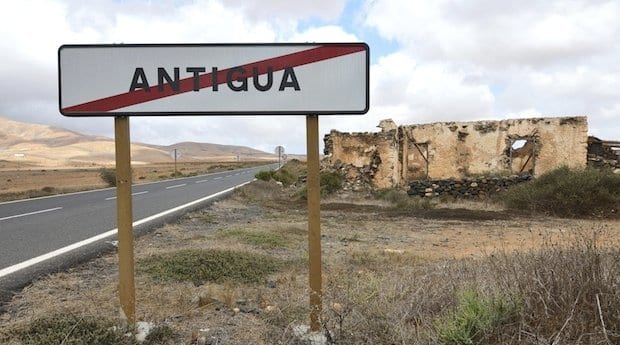The Caribbean is known for white sand beaches, waving palm trees and spectacular sunsets. Unfortunately, the area is also known for having a dismally poor record of human rights when it comes to the LGBT community.
The twin-island nation of Antigua and Barbuda is no exception: a buggery law is still in effect, and same-sex relations remain illegal, with a possible 15-year prison sentence for offenders. In 2011, Justin Simon, attorney general of Antigua and Barbuda, was quoted in the Antigua Observer as saying, “There will be no change in the law on buggery in Antigua and Barbuda, at least not if I can help it. Being gay is morally wrong, and to be honest personally, I am still homophobic.”
It is this environment that David, a Toronto man, says his partner, Carson (neither wanted their real names used for fear of repercussions from Carson’s family), an HIV-positive gay man and a native of Antigua, was sent back to by the Canadian government. Carson was deported in November 2013 and has been in Antigua ever since.
Having lived in Canada on and off since 2001 on various student and visitor visas, Carson discovered in 2007 that he could apply to immigrate to Canada as a gay refugee.
He was repeatedly turned down, David says, because he had entered and left the country multiple times under the conditions of his visas. “So [Citizenship and Immigration Canada] said [he] couldn’t have been that afraid because [he] kept leaving when [he was] supposed to and coming back,” David says.
He and Carson began dating casually in 2010, then more seriously in 2012. They met when Carson was already engaged in the process of trying to claim refugee status and had sought legal aid from a number of different lawyers.
According to David, the Canada Border Services Agency (CBSA) issued several orders for Carson to leave the country, but his lawyer was always able to refute them. In November, Carson’s sister intercepted one of these orders. Seeing that he had applied for refugee status as a gay man, she outed him to his homophobic family in Antigua. “He started receiving threatening calls,” David says.
When the calls began, Carson was unable to reach either the CBSA or his lawyer. Afraid to return to his homophobic family, Carson decided not to return to Antigua.
David says the CBSA issued a warrant for his deportation, but when Carson checked in with the Immigration and Refugee Board three days later, he was told not to worry.
About a week later, Carson was getting ready for work on a Friday morning when agents from the CBSA arrived at his door saying he needed to sign some papers. Once he got in their car, David alleges, Carson was driven to a detention centre, where he was held for two days before being put on a plane back to Antigua on Sunday morning.
“Basically . . . they ignored all the reports. They ignored the fact that there’s no services down there; there’s no HIV-positive support down there,” David says. Since returning to Antigua, he says, Carson has not been able to access medication for his HIV and — coupled with his suboptimal living conditions — his health has suffered.
Antiguan employers sometimes screen applicants for HIV, David says, which has made looking for work difficult for Carson. “It’s hard to prove any of that, because they just won’t call you back, or they’ll just say [they’ve] found someone else,” he says.
“It’s kind of like living in Peterborough in, like, 1975, where there’s just that high level of ignorance, high level of discrimination . . . [Carson] has already been kicked out of coffee shops and kicked out of the grocery store for being gay. For looking gay.”
Now that Carson has been deported officially, the couple’s options are running out. They have not been together long enough for a spousal immigration sponsorship but could explore the option of marriage in another country.
“A lot of the countries that allow same-sex marriage are only for residents, so you’re talking [about] going far away, and then it could take years, because you’re still not guaranteed,” David says, adding that this option would also be extremely costly.
David sends Carson money whenever he can to buy groceries and basic necessities. He is putting aside what money he can and exploring the available options for Carson’s situation. But other than that, he says, it’s a waiting game, while Carson’s mental and physical health is in jeopardy.
“We’re running out of options, and we’re not sure what’s going to happen.”
The Lesbian and Gay Immigration Task Force (LEGIT) provides immigration support to LGBT people and their partners.
Rainbow Refugee Canada is a Vancouver-based organization with resources for LGBT refugee claimants and their partners.
Read a report by the Immigration and Refugee Board of Canada on the treatment of sexual minorities in Antigua and Barbuda.


 Why you can trust Xtra
Why you can trust Xtra


